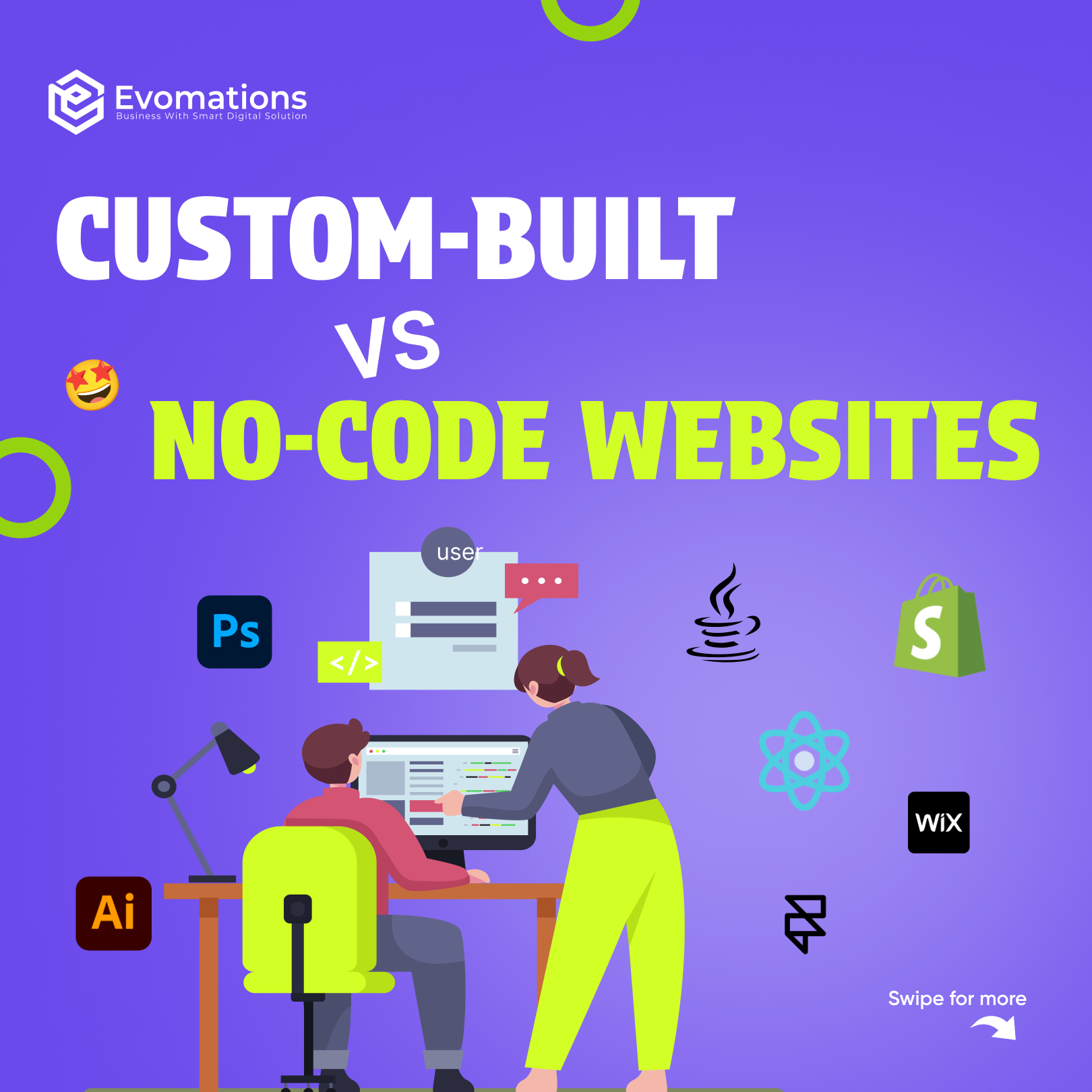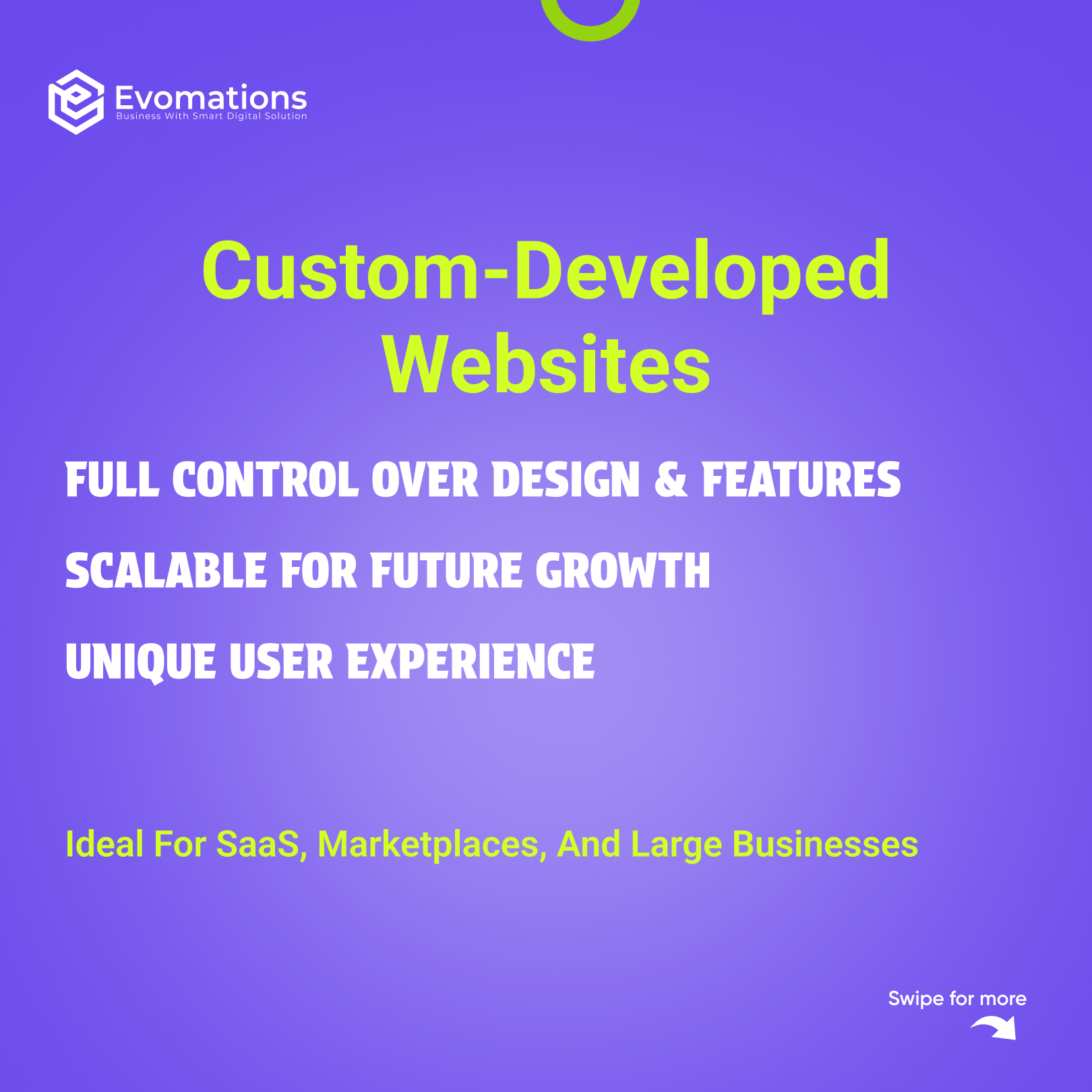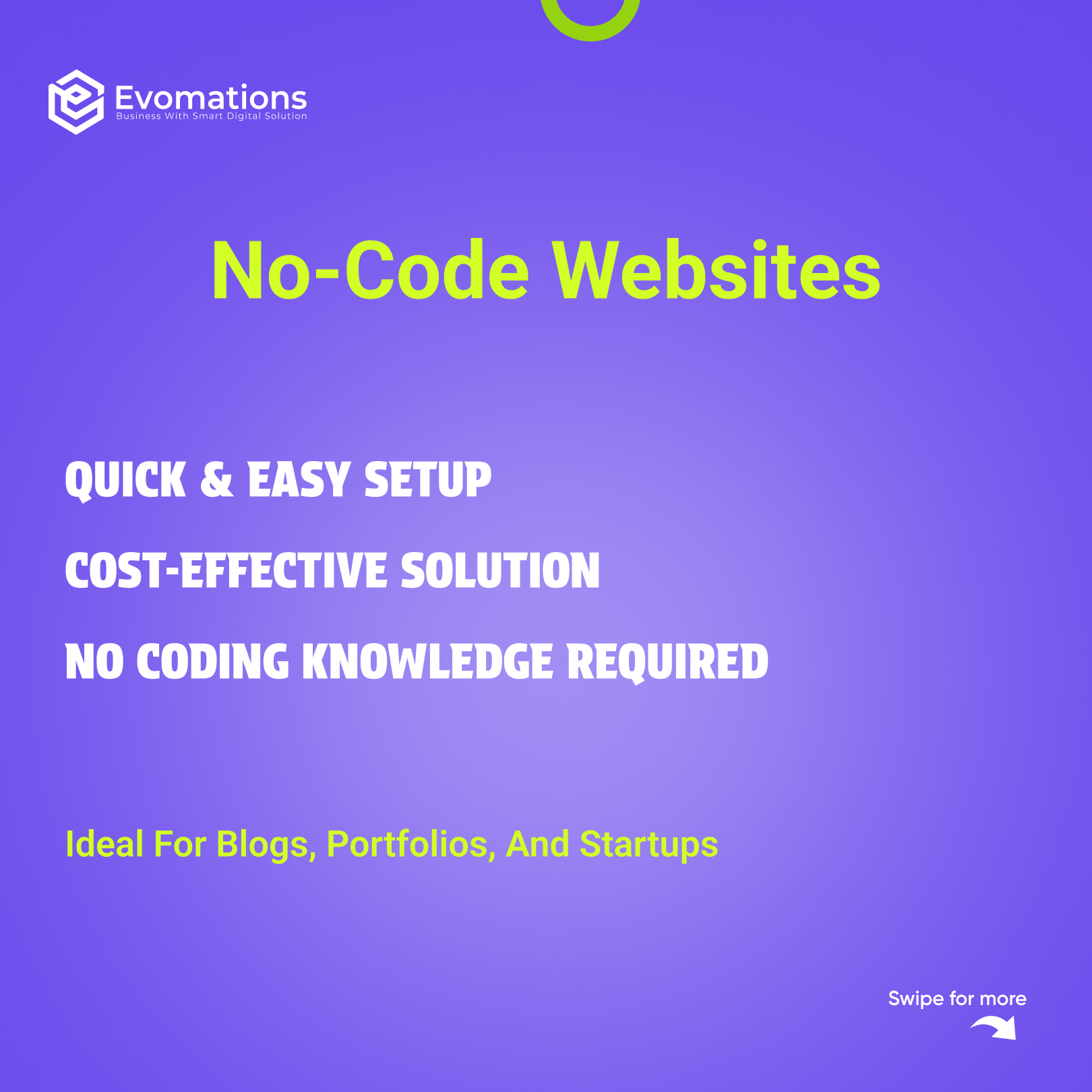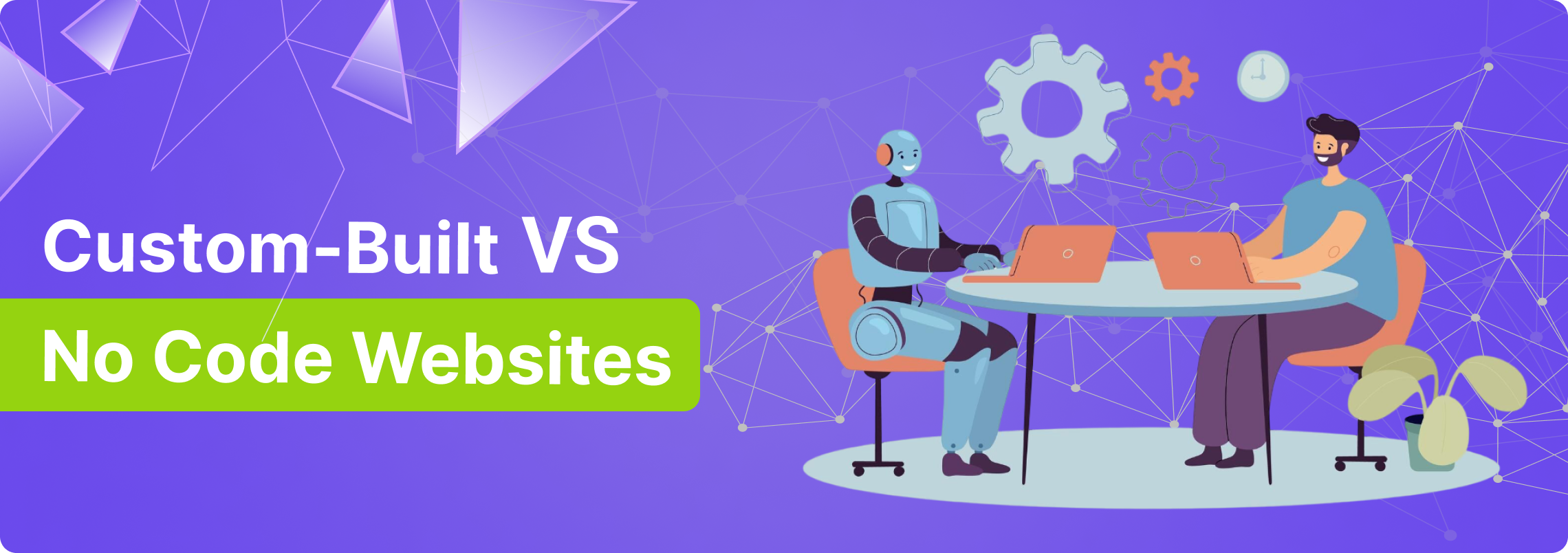- Written by: Nora James
- July 23, 2025
- Categories: Web Development
Custom-Developed Websites vs No-Code Websites: Which One Should You Choose?
Are you considering creating a website but unsure if you should go with a custom design or a no-code tool?
Many businesses have to make this choice, so you’re not alone.
For no-code websites, you can develop quickly without knowing how to code by using different platforms. They are inexpensive and simple.
Nonetheless, a custom-built website can be a better option if you require something more distinctive, scalable, or feature-rich.
Let’s discuss in detail to help you choose the best one.
What is A Custom-Developed Website?
As the name suggests, a custom-developed website is one that is created from scratch using programming languages such as HTML, CSS, JavaScript, Python, or PHP.
A web development team or agency typically creates this kind of website according to your particular requirements.
Consider it similar to working with an architect to create a house from the ground up: you have total control over how it looks, works, and scales.
Why Companies Opt for Custom Development
- They seek a distinctive appearance and feel that perfectly complements their brand.
- They require sophisticated functionality that plugins and templates are unable to provide.
- They are developing scalable applications such as member portals, SaaS systems, and eCommerce websites.
What is a No-Code Website?
No-code websites can be created by using visual platforms like Wix, Squarespace, Webflow, or WordPress. These platforms’ drag-and-drop editors, pre-made templates, and plug-and-play features enable you to create and launch a website without writing a single line of code.
Consider using a prefab kit to build a house; it’s quicker, simpler, and doesn’t need a construction crew. But there won’t be much room for modification.
Why No-Code Is Becoming More Well-Liked:
- It doesn’t require any technical expertise to use.
- It is economical, particularly for startups and small enterprises.
- Instead of weeks, you can go live in a matter of hours or days.
- The majority of platforms combine support, security, and hosting into one package.
Differences Between Custom Development and No-Code




1. Personalization and Adaptability
You have complete control with custom development. Everything can be customized to your exact specifications, including the appearance and feel of your site, a unique checkout process, and an AI-powered search function.
You are limited to dealing with pre-built components while using no-code platforms. If you want to create something genuinely original, you can run into a roadblock.
2. Launch Time
Here, no-code platforms excel. You can launch a working, respectable-looking website in a single weekend if you have the content ready.
On the other hand, depending on their complexity, custom-developed websites might take anywhere from four weeks to more than twelve weeks.
In summary, no-code is the best option if you need to be operational as soon as possible. However, the additional time required for custom development is frequently justified for more complex websites.
3. Cost and Budget
For many firms, it is a deciding element.
The initial cost of custom-developed websites is usually higher. In addition to recurring expenses like hosting, security, and upkeep, you are paying for developers, designers, project managers, and QA testers. However, you’re also spending money on a digital product that is fully yours, giving you unrestricted ownership and control.
Typically, no-code platforms use a subscription-based business model. For access to the builder, hosting, security, and customer service, you will have to pay a monthly or yearly cost. It is more predictable throughout time and less expensive upfront. Scaling or modifying beyond the platform’s capabilities, however, may require you to relocate later, which can be costly.
4. Scalability and Performance
It is possible to optimize a custom-built website for user experience, SEO, and speed. The way scripts are provided, how graphics load, and how the website functions during periods of high traffic can all be optimized.
Performance on no-code platforms is dependent on how effectively the infrastructure is designed. Additionally, even while many are quick enough for moderate traffic, if your audience expands or your material gets more complicated, you’ll frequently hit constraints.
Custom development is the best option if you intend to expand quickly by adding new features, user roles, or intricate backend workflows.
5. Continuous Upkeep and Assistance
No-code websites require less upkeep. The majority of the work is done by the platform, including hosting, updates, security patches, and bug fixes. This might be a boon to small teams or busy enterprises.
While custom-built websites need constant maintenance such as:
- Updates
- Security patches
- Server configurations
- Backups
- Performance adjustments
This allows you complete control over every aspect, which is essential for applications that are vital to the purpose.
6. Digital marketing and SEO
SEO optimization is possible for both custom and no-code websites.
Developers may apply sophisticated technical SEO techniques, such as structured data, custom redirects, page performance improvements, and schema markup, just as you want them with custom websites.
Power users may encounter difficulties fine-tuning features like crawl budget control, core web vitals, or multilingual SEO, even if the majority of no-code platforms include good SEO tools.
A custom website can give you a competitive edge if SEO is important to your business (think eCommerce or content-heavy websites).
Which One Should You Pick, Then?
If you’re creating a sophisticated online application rather than merely a marketing website, go with a custom-developed website.
- You must have complete control over the performance, functionality, and design.
- Your website must be able to withstand heavy traffic or scale quickly.
- A very distinctive or engaging user experience is essential to your brand.
If you’re starting a blog, portfolio, MVP, or startup on a tight budget, go with a no-code website.
- You want to go online as soon as possible with the least amount of technical work.
- Custom logic and integrations are not necessary at this time.
- The site is not necessary for complex commercial activities.
The decision between custom and no-code is ultimately not about which is “better.” It all comes down to what’s best for you at the moment.
Need hands-on help building the right website for your business?
Contact with Evomations!


